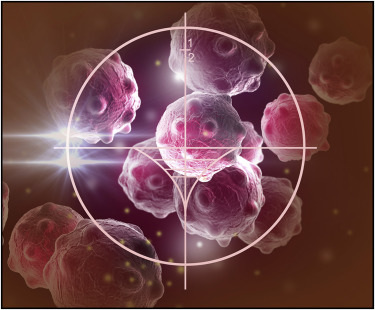Cancer research is a rapidly evolving field with new discoveries emerging daily on its biology, prevention, diagnosis, and treatment. In particular, the recent achievement of several key immunotherapy milestones dramatically changed the landscape of cancer treatment. An important advance occurred in 2010, with the US Food and Drug Administration (FDA) approval of the first therapeutic vaccine, Provenge (sipuleucel-T), for advanced prostate cancer, marking a major turning point for the fields of oncoimmunology and precision oncology. The FDA approval of another immune-based drug, Yervoy (ipilimumab) for the treatment of metastatic melanoma, followed in 2011. Ipilimumab is a monoclonal antibody that blocks cytotoxic T-lymphocyte-associated protein 4 (CTL4-A), a receptor expressed by activated T cells that negatively regulates their activation. The clinical success of CTLA-4 blockade prompted the development of other drugs targeting immune checkpoint molecules, such as nivolumab and pembrolizumab (programmed cell death protein 1 [PD-1] blockers), which have recently also been approved by the FDA. (For a review on immune checkpoint targeting in cancer see Sharma and Allison, 2015.)
Despite the clinical promise of checkpoint blockade immunotherapies, many challenges remain. Cancer is a highly heterogeneous and complex entity that is constantly changing over time, and cancer cells are very good at tricking the immune system, eventually leading to drug resistance and disease progression in some patients. Behind such disconcerting complexity there are, fortunately, opportunities. For instance, sequencing efforts showed that the tumor’s mutational load can influence sensitivity to immune checkpoint blockade (Snyder et al., 2014, Van Allen et al., 2015, Rizvi et al., 2015). As tumors grow, they accumulate mutations, which are a rich source of novel antigens (neoantigens) for the immune system to recognize, favoring effective immune-surveillance and potentially expanding the clinical benefit of immunotherapy. With this in mind, and motivated to identify the type of neoantigens that can elicit T cell reactivity and sensitivity to checkpoint blockade, Sergio Quezada, Charles Swanton, and colleagues investigated the impact and clinical relevance of neoantigen intra-tumor heterogeneity on anti-tumor immunity (McGranahan et al., 2016). The authors turn to TCGA data (The Cancer Genome Atlas, http://cancergenome.nih.gov) from patients with different types of lung cancer, and data from cancer patients treated with checkpoint inhibitors, and used computational tools to predict the tumoral neoantigenic landscape and evaluate the importance of clonal (common to all cancer cells in the tumor sample) versus subclonal (present in a subset) neoantigens. In lung adenocarcinomas, high clonal neoantigen burden is associated with a tumor microenvironment that is infiltrated with reactive T cells and with improved clinical response to PD-1 antibodies (pembrolizumab) and longer overall survival. In contrast, tumors with a high proportion of subclonal antigens (high intra-tumoral heterogeneity) benefit less from PD-1 blockade. Similarly, melanoma patients treated with antibodies against CTLA-4 (patient data from Snyder et al., 2014) show improved overall survival if their tumors exhibit a high clonal neoantigen burden and a low antigen intra-tumoral heterogeneity. These results suggest that neoantigens are not equal in their ability to induce anti-tumoral responses. Hence, it matters which antigen the immune system attacks. A comprehensive characterization of the tumoral clonal neoantigen repertoire could therefore be valuable for informing precise clinical decisions.
Boosting cancer immunotherapy can also be achieved by other strategies, as shown by Yang et al. (2016)) In this recent study, the authors report that the anti-tumoral activity of CD8+ T cells can be potentiated by modulating cholesterol metabolism. While the importance of cholesterol for T cell signaling and proliferation has been recognized before, no therapies that increase the level of cellular cholesterol are available. By generating and characterizing mice lacking ACAT1, a critical cholesterol esterification enzyme, Yang et al., find that CD8+, but not CD4+, T cells increase the cholesterol level in their membranes via inhibition of cholesterol-esterification and upregulation of cholesterol-biosynthesis. ACAT1-deficient CD8+ T cells show potentiated effector function and enhanced proliferation and have better anti-tumoral activity than wild-type CD8+ T cells. Importantly, a pharmacological ACAT inhibitor (avasimibe), which was previously tested in clinical trials for treatment of other medical conditions and showed a good safety profile, also inhibits tumoral growth and prolongs survival time in mice. Because it acts through different mechanisms, this new strategy has the potential of complementing current immunotherapies, such as checkpoint blockade. Indeed, combination of avasimibe with checkpoint blockers (PD-1 antibody) is more efficient in inhibiting tumor progression and improving survival than either therapy alone. These findings provide new hope for cancer patients who do not respond well, or acquire resistance to, checkpoint blockade drugs.
The clinical success of immunotherapeutic strategies has also prompted clinicians and researchers to re-evaluate the more standard care treatments, such as chemotherapy and radiation, to look for new therapeutic combinations which hopefully will pave the path for treating a wide range of cancers. It is thanks to a very fruitful partnership between immunology and cancer biology that immunotherapy is now at the forefront of cancer therapy. Such collaborative effort serves as a reminder of the role that multi-disciplinary research plays in innovation as we strive toward the shared goal of curing cancer.







